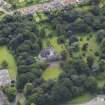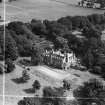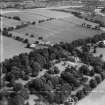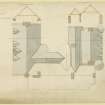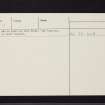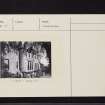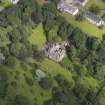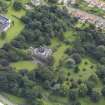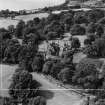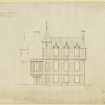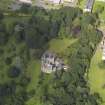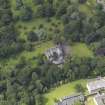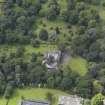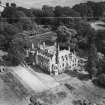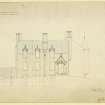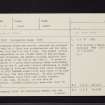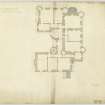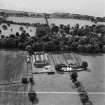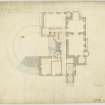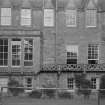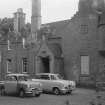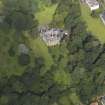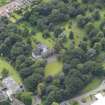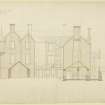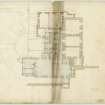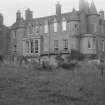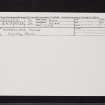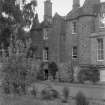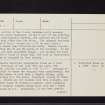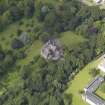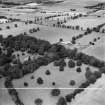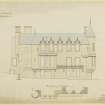Dundee, Invergowrie House
Country House (17th Century)
Site Name Dundee, Invergowrie House
Classification Country House (17th Century)
Canmore ID 31915
Site Number NO33SE 13
NGR NO 36189 30392
Datum OSGB36 - NGR
Permalink http://canmore.org.uk/site/31915
- Council Dundee, City Of
- Parish Dundee (Dundee, City Of)
- Former Region Tayside
- Former District City Of Dundee
- Former County Angus
NO33SE 13 36189 30392
(NO 3619 3038) Invergowrie House (NAT)
OS 6" map, Forfarshire, 2nd ed., (1926)
Invergowrie House was greatly extended and enlarged in 1837, when the S front was reconstructed and the doorway removed from the W to the N side. The oldest portion is now incorporated as the ground floor of the building, and the wall thickness and barrel-vaulting indicate that it probably dates to the end of the 14th century. It seems to have consisted of a great semi-circular tower overlooking the doorway on the W, and with lateral extensions at right angles, forming an L-shaped building with minor flanking towers, In 1600 further alterations were known to be made by Partick Gray, the then proprietor. He also probably built an additional upper flat with dormer windows, decorated with arms, initials, and the date of reconstruction. Further alterations were made about 50 years ago.
A H Millar 1890.
Invergowrie House is principally modern, but the central portion of the W wing contains early masonry. Within the small courtyard, on the E wall of the building, are two semi-circular turrets, the southern one of which appears much older than the other. The original entrance is in the W front; traces can still be seen under a circular turret. Modern turrets spring from the NW and SW angles of the building. In the N porch are four inscribed stones - one bearing the date 1601. The N block is dated 1837, the date of restoration. The house is occupied by four tenants.
Visited by OS (J L D) 18 April 1958.
Tranter (1962-70) describes Invergowrie House as a "much altered fortalice of the late 16th and early 17th centuries, greatly enlarged in 1836 (sic)". Although it is difficult to trace the original work consistently, the early plan seems to have been a lengthy ablong, lying approximately N-S, the walls, roughcast, rising to three storeys. Nearly all the windows have been enlarged, and the present range of dormers is modern, four pediments from the original dormers being built into the N porch as described by the OS field investigator. Internally, it has been greatly altered, and is split up into flats. The basement, however, is still vaulted.
N Tranter 1962-70.
NMRS REFERENCE:
Architect: William Burn. 1837 additions.
Photographic Survey (1959)
Photographs by the Scottish National Buildings Record in 1959.






































